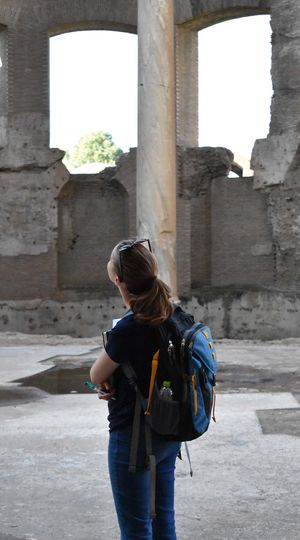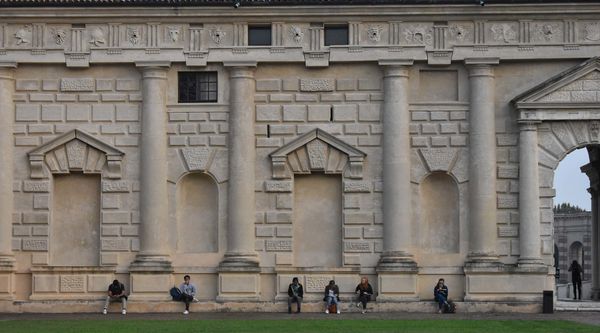Information for Students
Studio Travel

Rome is one of the world’s greatest cities for good food and drink, and learning about Italian cuisine is one of the benefits of spending a year at the Rome Studies Program. Students are encouraged to become familiar with the food cultures of Italy. Within walking distance of the School and the student residence are many dining and take-out establishments reflecting a wide-range of food types and price levels. There are also open-air markets where a vast array of local produce is sold which students can bring back to school to cook in the available kitchens. During field trips, students often discover the variety of Italian regional cuisine. In Italy, good food is available at all price levels.
Discovering the Italian Lifestyle
All program-sponsored travel is considered “class time” and is educational rather than recreational in its intent. This does not mean we do not also enjoy the pleasures of local cuisine, good fellowship, and celebration, but the primary purpose of these trips is to study architecture in its historical and cultural contexts. This means paying attention to the complex interweaving of the built environment with the varied ways of life that inspire and sustain it. Because the trips themselves can only offer an introduction to each place, we encourage students to revisit on their own.While itineraries have changed over the years, recent trips have taken students to such regions as Umbria, Tuscany, Emilia-Romagna, Veneto, Campania, and Sicily. Transportation is primarily by train or tour bus with faculty members leading frequent walking tours. Supplementing these trips are occasional one-day trips to locations closer to Rome, including ancient hill towns, sites associated with classical antiquity, and important villas and gardens of the Renaissance.An essential part of the Rome experience is travel outside the city. The Rome Studies Program schedules field trips at various times during the year to introduce students to places elsewhere in Italy that are relevant to their studies. There are generally two long trips in the Fall semester and two in the Spring semester. Students visit important cities and towns, enjoy tours of historic sites and museums, and spend significant time drawing and sketching in some of the most beautiful places in the world to study architecture.
Academic Requirements
Students at the Rome Studies Program are expected to observe the same standards that apply to residence life and academic work on Notre Dame’s main campus, including attendance at class, appropriate behavior, probity in the completion of class work, and responsible participation in the common activities of the Program.
Academic Code
The paragraphs below augment the information in the University's Undergraduate Academic Code, with which the students are expected to be familiar.
Mid-semester grade reports
University policy requires all faculty to inform students at mid-semester if they are likely to receive a grade of C-, D or F. Faculty are also asked by officials from the main campus to provide comment on the academic progress of student athletes.
Punctuality and absences
Students are expected to be punctual to classes and field trips. A class will often visit a site outside the facility and students are responsible for keeping up with the group. Illness, family emergency, or other similar cause will be considered grounds for an “excused absence” from class, but such absences must be made up as agreed to by the course instructor. Students should communicate with faculty about missing class due to illness or emergency. A pattern of “unexcused absences” may result in a failing grade for the course.
Syllabi
All professors provide printed syllabi for their classes. The syllabus explains the pedagogical goals of the course, deadlines, attendance policies, required reading or materials, and grading criteria.

A Healthy and Respectful Environment
University of Notre Dame policies on sexual harassment and other forms of improper behavior between faculty and students are clearly defined in the official documents and will be enforced at the Rome Studies Program. Please direct any questions you may have to the Academic Director of the Rome Studies Program.
Commendation for Excellent Student Work
The primary way that exemplary student design work is recognized is by being nominated for a“Special Commendation” honor. At the end of each semester, design studio instructors are asked to select three projects from each class to receive commendation. Rome students are also eligible for specific honors and awards given at the end of each academic year on campus.